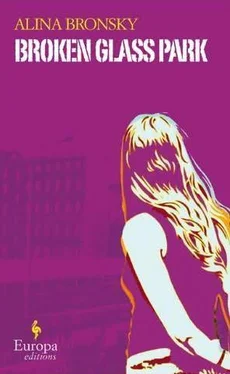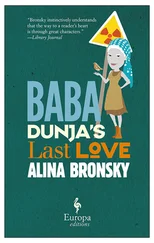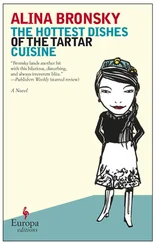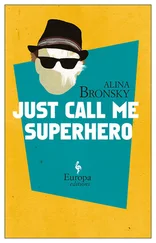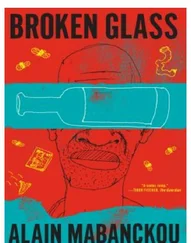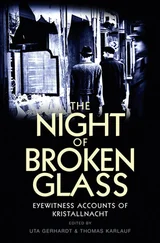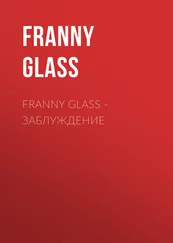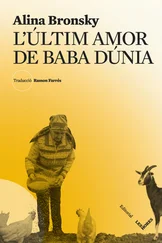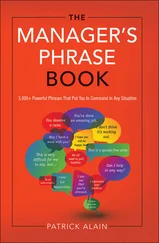In retrospect, I think they accepted me at the school to try to create a little diversity. A lot of doctors, lawyers, and architects got rejection notices for their kids. In the end there were five sections of fifth graders, each one crammed full, and in mine, 5C, I was the only one with an “immigrant background.” In 5A was a kid with an American father, and in 5B another with a French mother. In all my years there I’ve never seen a single black kid or anyone who looked even vaguely Middle Eastern. So in my class I was the heavyweight when it came to diversity.
On the first day of school my classmates stared at me as if I had just climbed out of a UFO. They asked me questions I couldn’t understand at first. Soon I could have answered them, but by then they all thought I was standoffish. It took a while for them to learn otherwise.
Considering most of them had never seen a foreigner up close before, they were all pretty nice to me. One of the first sentences I was able to understand was a compliment about my sweater. Probably out of pity. A little later, when I had learned to talk, count, and write papers and was the only one who put commas in the right places, everyone acted like they were happy for me. And maybe it was sincere.
My mother was always saying I should have friends from school over to our place. But she only said that because she was clueless. She was always inviting friends over. Twice I’d been over to the homes of girls from my class — Melanie and Carla — and I couldn’t possibly imagine having them over.
I’m not sure what threw me more: the neatness of Melanie’s room, the scent of the polished furniture — the type of furniture I thought existed only in catalogues or Anna’s fantasies — the fact that they sat around an oval dining room table for lunch instead of in the kitchen, or her horse-pattern sheets. I’d never seen such colorful sheets before. At home we had white or light-blue checked sheets, all of which were old and faded. How you could possibly fall asleep with your eyes flitting around looking at all those horses?
Melanie’s mother, by the way, was originally from Hungary. That came as a complete surprise — for one thing because Melanie had never mentioned it, and for another because she looked more stereotypically German than any other girl in our entire school. She was exactly what foreigners picture when they think of a young German girl — particularly foreigners who form that image from afar, having never been to Germany.
She had freshly cropped, always-neat, chin-length blond hair, blue eyes, rosy cheeks, and a crisply ironed jean jacket. She smelled of soap and spoke in a chirpy voice using sentences of mostly monosyllabic words, words that popped out of her mouth like peas. If I hadn’t have seen her in the flesh myself, I would never have believed someone like her actually existed.
Her mom, on the other hand, spoke with an accent — though I didn’t notice it the first time I went over there. Back then my own accent screeched as distractingly as a rusty bicycle. During lunch she stared at me with pity when she thought I wasn’t looking. She asked me questions about the town where I had grown up, the weather there, my old school, and my mother.
I told her that my mother had studied art history, that back home she had acted in a theater group that kept getting banned, that she wanted to find a little company here to join. Melanie’s mother took a sip of water and segued into a different line of questioning: wasn’t life in our housing project dangerous? I told her it was a lot cleaner and nicer than where I’d lived back there. I always referred to Russia that way—“back there.”
Melanie nibbled on her cheese-filled puff pastry and corrected her mother whenever she made a grammatical error. She also told her mother that they’d done a poll in class about what people wanted for their birthdays and seven students had said they wanted new stereos.
“So what?” said her mother, looking at Melanie through narrowed eyes.
“Don’t you understand what that means?” said Melanie, opening her blue eyes wide. “A new stereo. Meaning they already have one. And I still don’t have one.”
“But you do have one in your room,” I said. I couldn’t talk very well, but I talked a lot.
“That’s just an old system my cousin was getting rid of,” Melanie said. “It doesn’t have any of the features a stereo has to have these days.”
After lunch we went back into her spotless room. She turned on the stereo. I found a stack of old teen magazines and started reading them. Melanie spun herself around on her desk chair and chatted on the phone with another friend. Considering we didn’t have anything to say to each other, we made good use of the time. That evening Melanie’s mother drove me home. When we got there she looked around, unsettled, and insisted on taking me to the door to make sure I got home to my mother.
But my mother wasn’t home. I had a key.
“You should come over again,” said Melanie’s mother, patting my cheek.
“Thanks,” I said, thinking to myself, Not until there’s a new stack of magazines.
After that I looked at our apartment in a different light.
I pictured spotless Melanie in her pressed jean jacket taking the elevator with me. I pictured the way she would look around, fidgeting, like her mother. The way the scent of her soap would fight with the smell of urine in the hallway — and lose. I pictured her coming through the door of our apartment, catching sight of the couch we’d found discarded by a dumpster and the little table in front of it that would collapse if you even looked at it too hard. Books on the floor. The little TV and stack of videocassettes — even back then nobody had VHS tapes anymore. The cabinet with no door. My stepfather’s socks drying on the radiator. My brother’s sweatpants draped over a chair. We had five chairs, each one different because we’d found them separately, each left out on the street the night before a heavy garbage pickup.
We always ate in the kitchen, except when we had guests over for a party — in which case we had to clear out the main room to be able to fit extra chairs borrowed from neighbors. Our kitchen table was usually covered with jars of jam, letters, postcards, half-empty bottles, and old newspapers. We had twenty plates; none matched any of the others. My mother had bought them all individually at the flea market.
We didn’t have a dishwasher back then, and sometimes all twenty plates would stack up in the sink before my mother washed them up. Sometimes I did it, but not very often. And never when Vadim told me to — the same Vadim who left the frying pan crusted with the remains of his fried eggs. Though when his foul mouth started muttering my mother’s name menacingly, I cleaned up real fast.
I hate men.
Anna says good men do exist. Nice, friendly men who cook and help clean up and who earn money. Men who want to have children and give gifts and plan vacations. Who wear clean clothes, don’t drink, and even look halfway decent. Where on earth are they, I ask. She says they’re out there — if not in our town then in Frankfurt. But she doesn’t know any personally, unless you count people she’s seen on TV.
That’s why I always repeat the words my mother used to say: I don’t need a man.
Of course, though she always said that, she never stuck to it.
Ever since I decided to kill Vadim, I’ve felt a lot better. I also promised Anton, my nine-year-old little brother, that I’d do it. And I think he feels better now, too. When I told him, he opened his eyes wide and asked, breathless, “How are you going to do it?”
I acted as if I had everything under control. “There’s a thousand ways I could do it,” I told him. “I could poison him, suffocate him, strangle him, stab him, push him off a balcony, run him over in a car.”
Читать дальше
